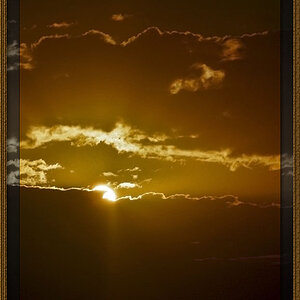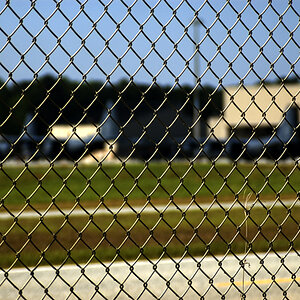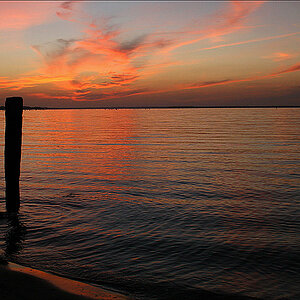Navigation
Install the app
How to install the app on iOS
Follow along with the video below to see how to install our site as a web app on your home screen.

Note: This feature currently requires accessing the site using the built-in Safari browser.
More options
You are using an out of date browser. It may not display this or other websites correctly.
You should upgrade or use an alternative browser.
You should upgrade or use an alternative browser.
Why is it that...
- Thread starter Vestal
- Start date
- Joined
- May 15, 2003
- Messages
- 5,275
- Reaction score
- 17
- Location
- Gilbert, AZ
- Website
- www.voodoocat.com
- Can others edit my Photos
- Photos NOT OK to edit
frowned upon by who? There are some "purists" out there but I don't think there is a single regular at this forum that frowns on digital manipulation. In the end it's the image that matters and if it looks good who gives a flying f#@% how you achieved it.Vestal said:...darkroom manipulation of black and white is fine but digital manipulation is sort of frowned upon?
photong
Typo Queen
- Joined
- Aug 7, 2003
- Messages
- 1,235
- Reaction score
- 5
- Can others edit my Photos
- Photos NOT OK to edit
My only problem is, for example...say someone wants lens flare in the image...but they don't do it in camera, but they do it in photoshop..that pisses me off. that kind of thing i frown upon. but not fixing colour because it's not that easy in camera because sometimes, the outide lightning just doesn't like you every day etc. or adding things like a butterfly...butterlies can't be tamed.... and I don't know about you, but I just don't have that kind of luck.
you can say the same thing about filters too.
you can say the same thing about filters too.
Karalee
hOtLiPs!
- Joined
- Feb 22, 2004
- Messages
- 3,851
- Reaction score
- 48
- Location
- Here....there....everywhere
- Website
- www.shuttervisions.com
- Can others edit my Photos
- Photos NOT OK to edit
Personally I dont frown on digital manipulation at all, I kinda just sit there in awe. The only difference, is that darkroom manipulation in the long run might not be as easy, cos theres no undo button.
Digital Matt
alter ego: Analog Matt
- Joined
- Jan 30, 2004
- Messages
- 5,358
- Reaction score
- 73
- Location
- Santa Barbara, CA
- Website
- www.mattperko.com
- Can others edit my Photos
- Photos NOT OK to edit
There's no undo button, but you can develop from the same negative as many times as you want. If you screw up you can always try again. Just takes longer than hitting undo 
- Joined
- May 15, 2003
- Messages
- 5,275
- Reaction score
- 17
- Location
- Gilbert, AZ
- Website
- www.voodoocat.com
- Can others edit my Photos
- Photos NOT OK to edit
A lens flare added in photoshop does not look realistic so to most people (including me) it just looks stupid. Compositing images is not an easy chore. It takes a lot of work to make a believable photo. When it looks fake, it looks cheesy IMO.photong said:say someone wants lens flare in the image...but they don't do it in camera, but they do it in photoshop..that pisses me off.
ksmattfish
Now 100% DC - not as cool as I once was, but still
- Joined
- Aug 25, 2003
- Messages
- 7,019
- Reaction score
- 36
- Location
- Lawrence, KS
- Website
- www.henrypeach.com
- Can others edit my Photos
- Photos NOT OK to edit
Well, I think the methods, techniques, and general path to your end product are extremely important, but I don't think there is one route/method that is overall and for everyone better than another.
The definition of "fine art" is art that has no other purpose than to look good. Much photography produced by both film and digital methods doesn't fit this definition, or maybe the definition doesn't fit the photos.
Here is a big part of the attitude you are describing: one of digital photography's strongest feature is convenience, while traditional darkroom work is not considered particularly convenient. Overall folks perceive more difficulty overcome as higher quality; it's BS, but that's the way it goes. Digital can get around this by being very expensive. Overall cash money eventually trumps all
Does any of this really matter? Absolutely not. Do what you need to do, and don't worry about what anyone else says. The most important piece of equipment is you the photographer.
The first thing I do to any camera I get, digital or film, is install a dial that goes up to 11. Then I can just say "Hey man, I shot this at 11. My camera goes up to 11!"
The definition of "fine art" is art that has no other purpose than to look good. Much photography produced by both film and digital methods doesn't fit this definition, or maybe the definition doesn't fit the photos.
Here is a big part of the attitude you are describing: one of digital photography's strongest feature is convenience, while traditional darkroom work is not considered particularly convenient. Overall folks perceive more difficulty overcome as higher quality; it's BS, but that's the way it goes. Digital can get around this by being very expensive. Overall cash money eventually trumps all

Does any of this really matter? Absolutely not. Do what you need to do, and don't worry about what anyone else says. The most important piece of equipment is you the photographer.
The first thing I do to any camera I get, digital or film, is install a dial that goes up to 11. Then I can just say "Hey man, I shot this at 11. My camera goes up to 11!"

photogoddess
TPF Noob!
- Joined
- Feb 29, 2004
- Messages
- 6,251
- Reaction score
- 34
- Location
- Lala Land
- Website
- www.trueblueintimates.com
- Can others edit my Photos
- Photos NOT OK to edit
Probably the same reason the "traditional" artists banned photographers. Just sheer ignorance. Having spent quite alot of time in a darkroom (both color and black & white) I tend to view photoshop as being very similar to a darkroom, just without the chemicals and safelights. 
- Joined
- May 15, 2003
- Messages
- 5,275
- Reaction score
- 17
- Location
- Gilbert, AZ
- Website
- www.voodoocat.com
- Can others edit my Photos
- Photos NOT OK to edit
Love the spinal tap referenceksmattfish said:"Hey man, I shot this at 11. My camera goes up to 11!"

ksmattfish
Now 100% DC - not as cool as I once was, but still
- Joined
- Aug 25, 2003
- Messages
- 7,019
- Reaction score
- 36
- Location
- Lawrence, KS
- Website
- www.henrypeach.com
- Can others edit my Photos
- Photos NOT OK to edit
photogoddess said:I tend to view photoshop as being very similar to a darkroom, just without the chemicals and safelights.
It is, now... Once the digital transition is complete, and film is just an "alternative technique" practiced by arty nuts like myself, the designers and engineers will be able to break away from 100+ years of film photography. The software and techniques will change radically. Just think of how film influences camera design. All of the DSLRs are designed around a camera body shaped to take roll film. They could be all sorts of new shapes. Stashed in your sunglasses or forehead.
How long until motion pic cams are so good that photographers just roll all day, and sort out the good pics later. Some people will still produce better images than others, and they will compete with the old ways, and when this sort of change appears there will be plenty of old fogies bitching about how the new technology isn't as "fine" or real as good old digital still photography.
But it will still be photography.
photogoddess
TPF Noob!
- Joined
- Feb 29, 2004
- Messages
- 6,251
- Reaction score
- 34
- Location
- Lala Land
- Website
- www.trueblueintimates.com
- Can others edit my Photos
- Photos NOT OK to edit
The same steps - burning, dodging, lightening, darkening and contrast manipulation are done both in the darkroom and with PS. Matt has a lot of good points but for me personally, digital gave me a renewed interest in film and photography in general. I know that sounds funny but after years of just "tinkering" (I gave up shooting professionally years ago), I find myself buying darkroom equipment, film in bulk, signing up for workshops & learning how to us PS. Digital and PS hasn't changed the amount of time that I spend composing photos. Digital's biggest impact on me is that it has helped me to love photography again. It's been a long time since I have enjoyed (and experimented) with photography like this.
- Joined
- Jun 21, 2004
- Messages
- 9,468
- Reaction score
- 100
- Location
- TX
- Website
- fatephoto.com
- Can others edit my Photos
- Photos OK to edit
voodoocat said:Love the spinal tap referenceksmattfish said:"Hey man, I shot this at 11. My camera goes up to 11!"

Ditto to that, Spinal Tap is one of the best movies of all time!
I've always thought that Photoshop was the equilivient to a digital darkroom. I've never really understoond the debate of whether to use editing software for photos. It would be like taking the standard shot of the negative and not using darkroom techniques to enhance it. You crop with an enlarger, change the contrast, etc.
Karalee
hOtLiPs!
- Joined
- Feb 22, 2004
- Messages
- 3,851
- Reaction score
- 48
- Location
- Here....there....everywhere
- Website
- www.shuttervisions.com
- Can others edit my Photos
- Photos NOT OK to edit
Digital Matt said:There's no undo button, but you can develop from the same negative as many times as you want. If you screw up you can always try again. Just takes longer than hitting undo
Thats what I mean
 but a bit more expensive if you botch it up all the time... not that I know or anything
but a bit more expensive if you botch it up all the time... not that I know or anything ksmattfish
Now 100% DC - not as cool as I once was, but still
- Joined
- Aug 25, 2003
- Messages
- 7,019
- Reaction score
- 36
- Location
- Lawrence, KS
- Website
- www.henrypeach.com
- Can others edit my Photos
- Photos NOT OK to edit
photogoddess said:for me personally, digital gave me a renewed interest in film and photography in general.
Look at all the old and alternative processes that photo supply places like Freestyle are putting in their catalogs. You never saw that stuff when it was film only. I agree, the digital revolution has caused a renewed interest in different kinds of photography.
I started getting into photography when I purchased a Kodak DC-25 (I think that's what it was) digital cam back in the mid 90s. Now look at me, my favorite cameras are 10, 20, 30+ years older than I am.
StvShoop
TPF Noob!
well said manksmattfish said:Does any of this really matter? Absolutely not. Do what you need to do, and don't worry about what anyone else says. The most important piece of equipment is you the photographer.
i'm feeling this too. i'm working on my entry to a WV state parks photo contest... one of the rules is *in a big booming voice* "no editing"AlisonS said:I've always thought that Photoshop was the equilivient to a digital darkroom. I've never really understoond the debate of whether to use editing software for photos. It would be like taking the standard shot of the negative and not using darkroom techniques to enhance it.
i could pick at all the reasons why that's just stupid, but most of em have been mentioned here already. by the poor quality of my town's newspaper photography, i think the pros around here are using that rule in their work :shock:
i will say however, that there's something magical about a photo that's gorgeous without any post-work. maybe that's just an amateur's awe
on the topic of "artist intervention", i want to throw this idea on the table...
is setting the fstop, shutterspeed, viewing angle, etc so different from "post-work"? does the solidification of the image in a chemical or electronic format have to divide the processes into such extreme "pre" and "post" categories? i think this dividing point is where the argument for purists' notion of "editing" lies
Similar threads
- Replies
- 2
- Views
- 471
- Replies
- 0
- Views
- 120



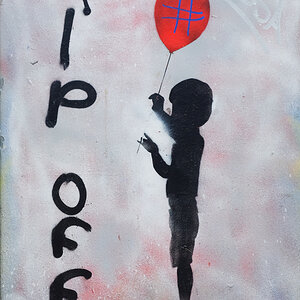


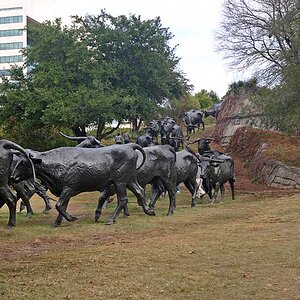
![[No title]](/data/xfmg/thumbnail/42/42034-6262420ff3ea238f05395bbcc7ae1f28.jpg?1619739985)


